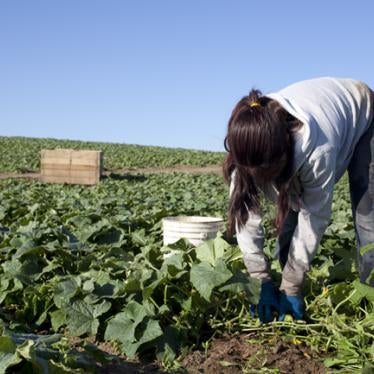By Michael Bochenek, Counsel to the Children's Rights Division of Human Rights Watch
Published in The Washington Post
On any given day, between 200 and 300 young people are held in Maryland's adult jails, a consequence of state measures making it easier for children to be tried as adults. Since 1992, 40 states have adopted such legislation, driven by inaccurate assumptions that juvenile crime is on the rise and that trying children as adults will reduce crime.
Neither premise is correct.
Juvenile crime has declined steadily since 1993, and several studies have concluded that juveniles tried as adults are more likely to commit crimes in the future than youth prosecuted in juvenile courts.
While trying children as adults neither reduces crime nor rehabilitates the children, it often leads to abuses. Adult jails lack the infrastructure, staffing and programs to handle youth. Locking up these children in adult jails is a violation of their basic human rights.
During a 12-month period, Human Rights Watch visited five jails in Maryland and interviewed more than 60 juvenile detainees. We found staff not trained to handle juveniles, children not getting enough education or recreation, and jails that lack appropriate medical and mental health care. The children we spoke with complained that they were not getting enough to eat.
Children held in the Baltimore City Detention Center endure particularly appalling conditions and face daily threats to their physical safety. They are confined to grim, poorly lit cells crawling with cockroaches and rodents. Violence is rampant. Frequent fights lead to lengthy "lock downs," during which entire sections are restricted to their cells, sometimes for weeks at a time.
Children held in adult jails are as much as eight times more likely to commit suicide than those held in juvenile detention centers. Yet the Baltimore jail offers almost no counseling to juvenile detainees, either in groups or individually. Detainees in crisis may be placed under suicide watch, but they then are kept naked, with nothing but paper sheets to cover their bodies.
Although the best preparation for reentering society may be access to education, some of the Maryland jails we visited offer no education to youth; others provided schooling that fell far short of the number of hours required by state law.
Clearly, the state is failing its children. While some children, particularly those accused of committing violent offenses, may need to be detained in juvenile institutions pending trial, they do not belong in jail with adult inmates.
This kind of treatment violates international law and the Constitution. Maryland can and must do better.








